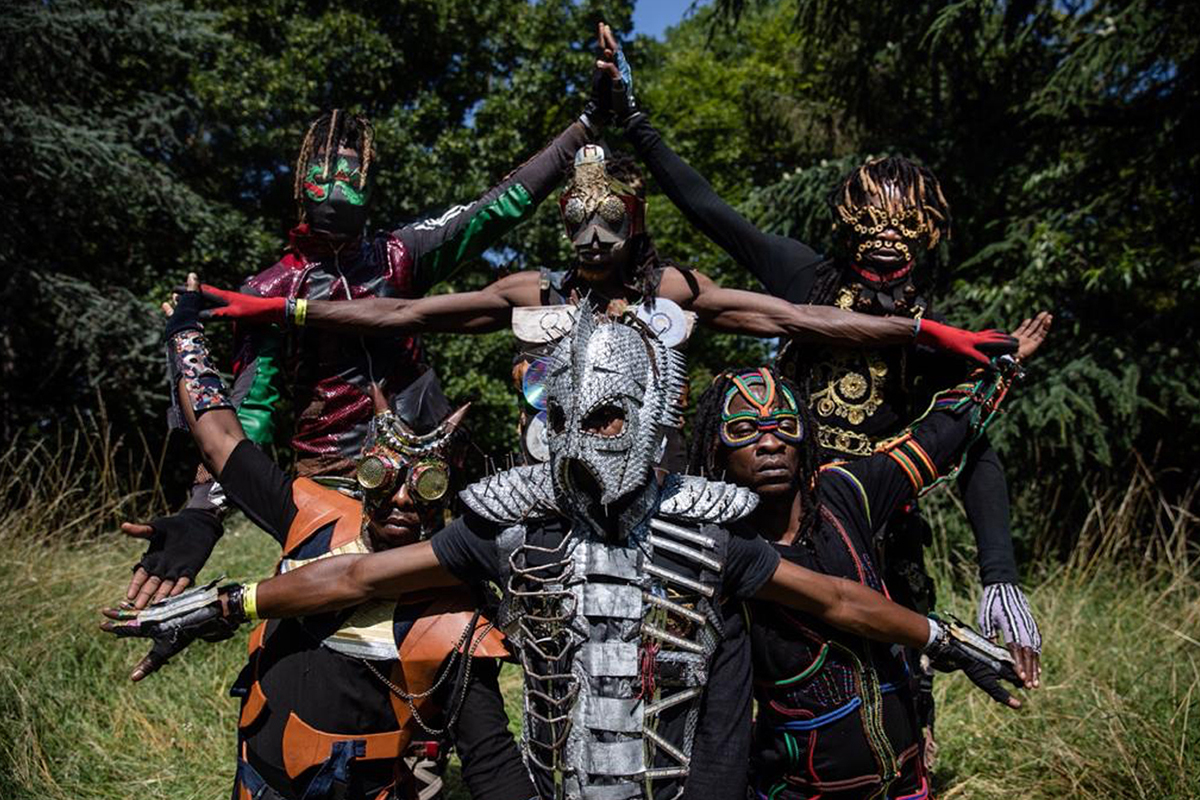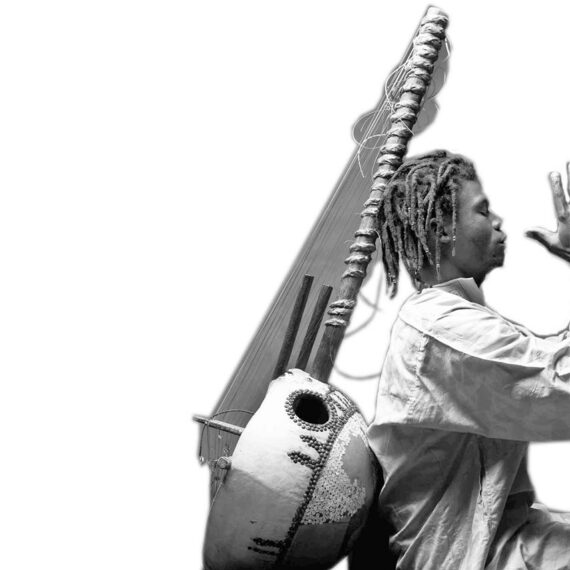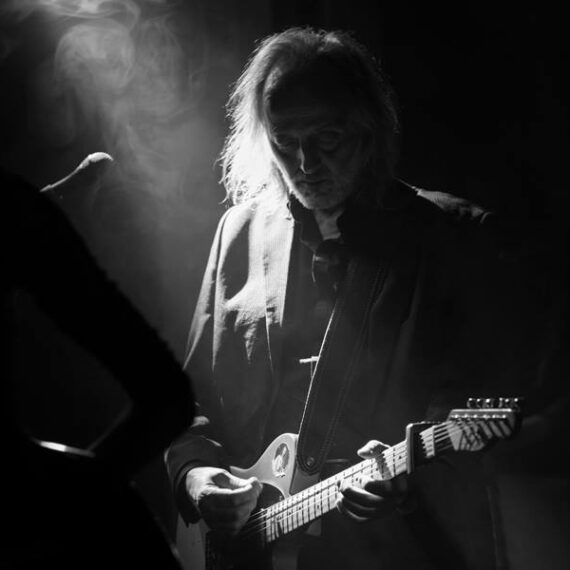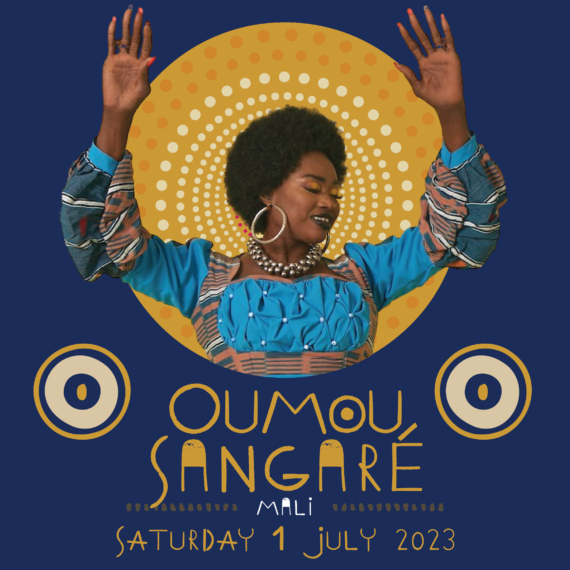Fulu Miziki Kollektiv

Only a few artists are capable of generating global attention without even releasing an album… Fulu Miziki is perhaps one of the most unlikely examples. The collective, emerging in Kinshasa about ten years ago, had not released an album, EP, or even a single until this year. However, they have become one of the most discussed names in the global beat scene because of their authentic, rhythmic, and noisy anthem to “do-it-yourself” music or local music.
In an era of environmental crisis and renewed awareness of nature, their so-called “trash music” is one of the best examples of a daily commitment to returning to a more elementary and organic lifestyle. Starting with their handmade instruments and stage costumes that they recover and breathe new life into from fragments found on the streets of Kinshasa, Fulu Miziki embodies the true spirit of an eco-warrior by spreading a militant message of waste awareness and educating the youth on recycling practices.
It is a collective of Afro-futuristic-punk artists whose name is in Lingala – one of the four official languages of the Democratic Republic of the Congo, already used by musicians like Papa Wemba or Fally Ipupa – and the translations into English and French are explicit: “trash music” and “musique de la poubelle.” Each member of Fulu Miziki continuously searches through the abundant heaps of garbage infesting Kinshasa and uses the material to build instruments, mostly composed of plastic, iron, and wood. “Music is life, it’s the environment,” is their slogan.
“Yes, our driving force is mainly our environment, what surrounds us, but also our older artists who have tried to do the same,” explains Pisko Crane, the founder of the collective. “We’re talking about music, but also about the look, the costumes, and the masks. The Congo has many artists; traditionally, we are an art country; you can see it for yourself in the Africa Museum in Belgium where our stolen art has been preserved. As we grow up, churches play an important role for us: that’s where we learn to sing, to play instruments.”
Among their artistic masters are Pepe Kale, Franco Lwambo, Zaiko, but also Michael Jackson, American hip hop music like Naughty by Nature. “Currently, we are moved by anything that sounds good to our eyes. From time to time, we listen to Congolese rumba, afrobeat, and we also like electronic music,” say Fulu Miziki, who are Pisko Crane, Sekelembele, Abbe, Padou, Tsche Tsche, Deboul, Le Meilleur, Aicha, but on stage, they always have up to ten instruments, each created by the artist who plays it. Their “noisy” performances are linked to the fame of the eco-friendly ensemble: “It started about three years ago when we had a team behind us that helped shape our ideology and decide how to convey our message to the outside world. And it was fantastic; people love what we’re doing, and we appreciate everyone who comes to our concerts, orders our merchandise, and buys our music.”
Their songs touch on dealing, politics, human rights, and love. “These are the topics we find interesting and can share a message with the audience. Each artist contributes to a song, with their instruments,” they explain. Songs born in Kinshasa, the capital of Congo, the base of the collective. “Kinshasa is everything to us; it’s where we were born, the place that has offered us what we have now and what we carry into our future when it comes to art. Our streets are extremely vibrant; people dress stylishly and very elegantly, the markets are noisy, churches are huge and even extra. Funerals are such a big event; death is celebrated, and so is birth. We are proud of what we have achieved so far and look forward to doing more.”



